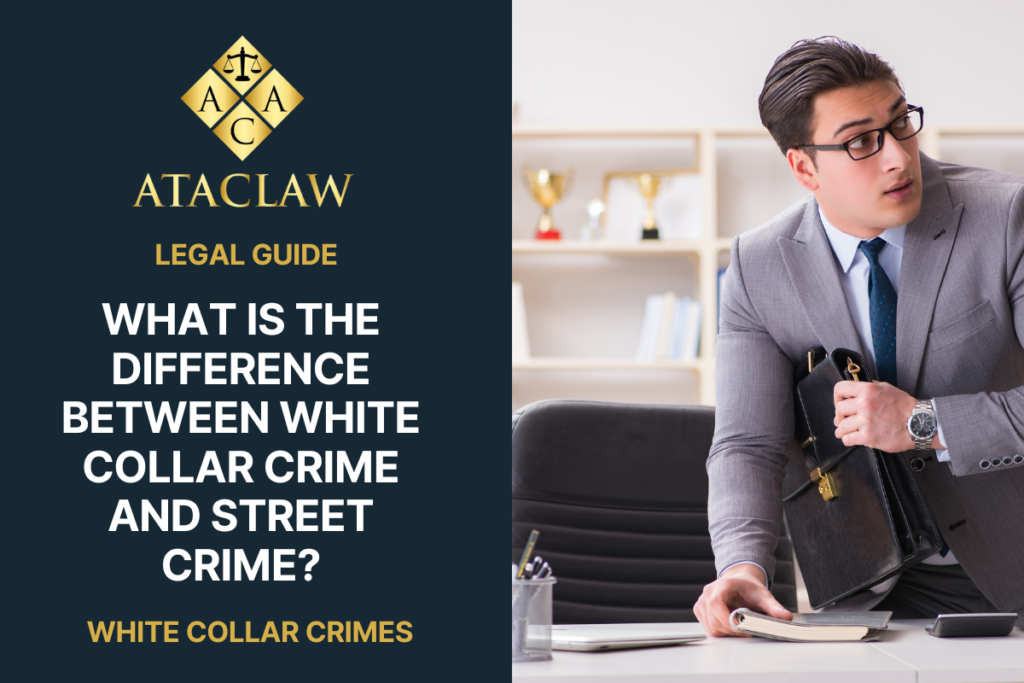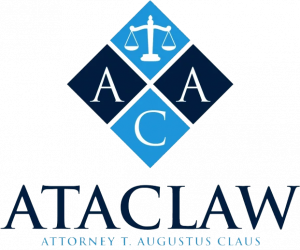What is the Difference Between White Collar Crime and Street Crime?
What sets white collar crime apart from street crime? While both types of crime fall under the umbrella of criminal activities, their differences lie in their nature and the individuals involved. Street crime typically refers to offenses that occur in public places, such as assault, theft, or drug-related crimes. On the other hand, white collar crime involves non-violent, financially motivated crimes committed by individuals in professional or business settings, like fraud, embezzlement, or insider trading.
In street crime, the focus is often on immediate gains or personal disputes, while white collar crime tends to be more sophisticated and complex. Perpetrators of street crime may be driven by desperation, lack of opportunity, or social influences, whereas white collar criminals may be motivated by greed, power, or a sense of entitlement.
Understanding the differences between these two types of crime is essential for law enforcement, policymakers, and society as a whole. By recognizing the distinct characteristics of white collar crime and street crime, we can develop more effective strategies to prevent and combat these illegal activities.
Definition and examples of white collar crime
White collar crime refers to a variety of non-violent offenses committed by individuals in professional or business settings. These crimes are typically financially motivated and involve deceit, fraud, or other illegal activities. Examples of white collar crime include embezzlement, insider trading, tax evasion, money laundering, and corporate fraud.
One prominent example of white collar crime is the Enron scandal, which occurred in the early 2000s. Enron, an energy company, engaged in accounting fraud to manipulate its financial statements and inflate its stock prices. The scandal resulted in the company’s bankruptcy, countless job losses, and significant financial losses for investors.
Another example is the Bernie Madoff Ponzi scheme, one of the largest financial frauds in history. Madoff, a prominent investment advisor, operated a fraudulent investment scheme that defrauded investors out of billions of dollars. Madoff’s scheme eventually collapsed, leading to his arrest and conviction.
White collar crimes are often complex and require a high level of sophistication to carry out. Perpetrators may use their positions of power and authority to manipulate financial systems, deceive investors, or engage in other illegal activities.
Definition and examples of street crime
Street crime, on the other hand, pertains to offenses that occur in public places and are often associated with immediate gains or personal disputes. Examples of street crime include assault, robbery, theft, drug-related crimes, and vandalism.
Assault, a common form of street crime, involves intentionally causing physical harm or the threat of physical harm to another person. Robbery refers to the act of forcibly taking someone’s property through intimidation or violence. Theft, another prevalent street crime, involves the unauthorized taking of someone’s property without their consent.
Drug-related crimes, such as drug trafficking or possession, occur when individuals are involved in the illegal production, distribution, or consumption of controlled substances. Vandalism, often associated with street crime, involves the deliberate destruction or damage of property without the owner’s consent.
Street crimes are typically characterized by their immediate impact and the use of physical force or violence. Perpetrators may engage in these activities due to factors such as poverty, addiction, or personal disputes.
Differences in motivation and intent
One of the key distinctions between white collar crime and street crime lies in the motivations and intent of the individuals involved. In street crime, perpetrators are often driven by immediate gains or personal disputes. They may commit crimes out of desperation, the need for quick cash, or as a result of conflicts with others.
On the other hand, white collar criminals are motivated by financial gain, power, or a sense of entitlement. These individuals may have access to sensitive information, financial resources, or positions of authority that they exploit for their own benefit. White collar crimes are often carefully planned and executed, involving complex schemes or manipulation of systems.
The motivations behind street crime and white collar crime reflect the different circumstances and opportunities available to individuals. Street crime may be driven by socioeconomic factors, lack of opportunity, or influences from peers and social environments. In contrast, white collar crime often occurs within professional or business settings, where individuals have access to resources and positions that facilitate their illegal activities.
Differences in victims and impact
Another notable difference between white collar crime and street crime is the type of victims and the impact of the crimes. In street crime, the victims are often individuals or small businesses who suffer immediate harm or loss. Victims of assault, robbery, or theft may experience physical injuries, emotional trauma, and financial setbacks.
White collar crimes, on the other hand, often have a broader impact on society as a whole. The victims of white collar crimes can include employees, investors, shareholders, and the general public. For example, in cases of corporate fraud or embezzlement, employees may lose their jobs, investors may lose their savings, and the public’s trust in the financial system may be eroded.
The financial impact of white collar crimes can be substantial, affecting not only individuals but also entire communities and economies. When large-scale fraud or corruption occurs, it can result in significant financial losses, market instability, and a loss of confidence in the affected industries or institutions.
Differences in investigation and prosecution
The investigation and prosecution of white collar crimes and street crimes also differ in several ways. Street crimes are often more visible and immediate, making them easier to detect and investigate. Law enforcement agencies typically respond to reports of street crime promptly, collecting evidence, interviewing witnesses, and making arrests.
White collar crimes, on the other hand, can be more challenging to detect and investigate. These crimes often involve complex financial transactions, manipulation of records, and sophisticated schemes that require specialized knowledge and expertise to uncover. Law enforcement agencies may need to collaborate with financial experts, forensic accountants, and other professionals to gather evidence and build a case.
Prosecuting white collar crimes can also be more complex than prosecuting street crimes. White collar criminals often have access to legal resources, financial means, and influential connections that can make it challenging to hold them accountable. The legal process for white collar crimes may involve lengthy investigations, legal battles, and complex trials.
Societal perception and media coverage
Societal perception and media coverage of white collar crime and street crime can differ significantly. Street crimes, especially those involving violence, tend to receive more immediate attention from the media and the public. The impact of these crimes is often visible and can generate fear and outrage within communities.
White collar crimes, on the other hand, may receive less immediate media attention, especially if their impact is not immediately apparent. The complex nature of these crimes can make it challenging for the media to report on them in a way that captures public interest. However, when high-profile white collar crimes are exposed, they often garner significant media coverage due to their magnitude and potential impact on the economy or public trust.
Societal perception of white collar crime and street crime may also differ. Street crimes are often associated with lower socioeconomic classes and are seen as a societal problem that needs to be addressed through law enforcement and social programs. In contrast, white collar crimes may be perceived as crimes committed by individuals in positions of power and influence, leading to concerns about corruption, accountability, and the fairness of the legal system.
Case studies of famous white collar crimes
Understanding the distinctions between white collar crime and street crime can be further enhanced by examining case studies of famous white collar crimes. These examples shed light on the motivations, impact, and consequences of white collar crimes.
One such case study is the WorldCom accounting scandal, which occurred in the early 2000s. WorldCom, a telecommunications company, engaged in fraudulent accounting practices to inflate its financial statements and hide its mounting debt. The scandal resulted in the company’s bankruptcy and the loss of thousands of jobs. The CEO of WorldCom, Bernard Ebbers, was eventually convicted and sentenced to prison.
Another notable case is the Volkswagen emissions scandal, which came to light in 2015. Volkswagen, a leading automobile manufacturer, was found to have installed software in its diesel vehicles to manipulate emissions test results. The scandal not only resulted in financial losses for Volkswagen but also damaged the company’s reputation and trust among consumers.
These case studies highlight the far-reaching consequences of white collar crimes, from financial losses to job insecurity and damage to public trust. They also demonstrate the importance of effective regulation, oversight, and enforcement to prevent and detect such crimes.
Case studies of famous street crimes
Examining case studies of famous street crimes provides further insights into the motivations, impact, and consequences of these offenses. These examples illustrate the immediate harm caused by street crimes and the challenges faced by law enforcement in addressing them.
One well-known case is the O.J. Simpson murder trial, which captivated the public’s attention in the 1990s. Simpson, a former professional football player, was accused of murdering his ex-wife, Nicole Brown Simpson, and her friend, Ronald Goldman. The trial highlighted the complexities of investigating and prosecuting high-profile street crimes and sparked intense public debate.
Another notable case is the Central Park jogger case, which occurred in New York City in 1989. A young woman was brutally assaulted and raped while jogging in Central Park. The case received widespread media coverage and ignited public concern about crime rates and safety in urban areas. The eventual arrest and conviction of five teenagers, known as the Central Park Five, highlighted issues of racial bias, wrongful convictions, and the challenges of investigating and prosecuting street crimes.
These case studies underscore the immediate and personal impact of street crimes on individuals and communities. They also raise important questions about the fairness and effectiveness of the criminal justice system in addressing and preventing such crimes.
Understanding the distinctions between white collar crime and street crime
White collar crime and street crime differ in their nature, motivations, victims, impact, investigation, and societal perception. While street crimes often involve immediate gains, personal disputes, and physical violence, white collar crimes are financially motivated, complex, and often non-violent. Street crimes impact individuals and communities directly, while white collar crimes can have far-reaching consequences on a larger scale.
Recognizing these distinctions is crucial for law enforcement, policymakers, and society as a whole. Effective strategies to prevent and combat these crimes must take into account the unique characteristics and challenges associated with each type. By understanding the motivations behind white collar crime and street crime, we can work towards creating a safer and more just society where both types of criminal activities are appropriately addressed.
Do you need a Fraud Crimes Attorney in Las Vegas?
If You’re Facing Fraud Charges, We’re Here To Help.
Call us for help
We have answers for you
To learn more about Fraud laws in Las Vegas and how to get your self defense charge dismissed or to discuss a particular criminal case that you or someone you love is facing, Call ATAC Law firm for help to get your charges reduced or dismissed.
Contact us for a FREE phone meeting to discuss your case with what people are calling the best criminal defense attorney in Las Vegas.
At ATAC, our Las Vegas team of lawyers is here to work with you to help you through your case.


